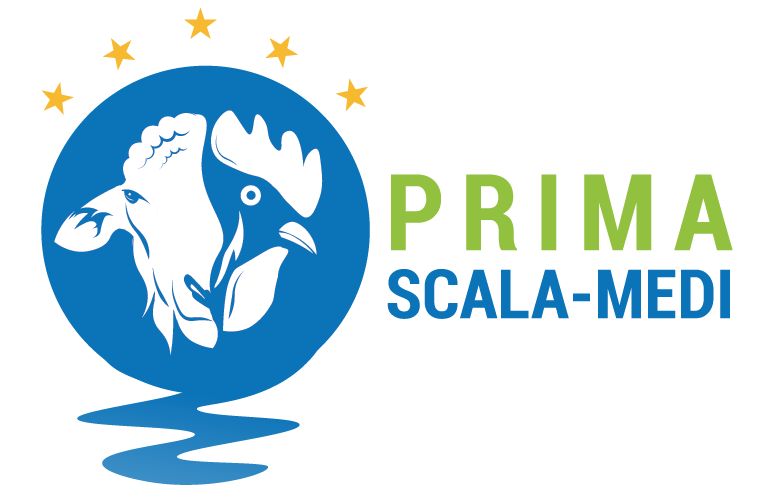SCALA–MEDI
Improving sustainability and quality of Sheep and Chicken productions by leveraging the Adaptation potential of LocAl breeds in the MEDIterranean area
The SCALA-MEDI project will characterize the genetic and phenotypic diversity of local Mediterranean sheep and chicken breeds and study their adaptability to harsh environments and poorly controlled management systems. These two species were chosen for their major role in livestock breeding in North Africa and because they make it possible to test different valorization and conservation strategies. The project takes advantage of the data produced in previous European projects and will complement them by generating new data, specifically on production characteristics in traditional systems, using new technologies. In addition to genotyping by means of a low-cost multi-species chip, the project will perform remote phenotyping of adaptation-related characteristics (body temperature, movement), and will explore the methylation state of the genome of animals raised under different environmental conditions.
Data and samples of local breeds from Tunisia, Algeria and Morocco will be collected (14 breeds for sheep, and several chicken ecotypes), drawing on local expertise in addition to the knowhow in Italy and France. Local resources will be characterized according to the livestock system, diversity of environments, genetic diversity, and specific adaptation characteristics. Genomic data will be analyzed to identify the loci controlling adaptation traits over a wide range of environmental variations from the Sahara to Southern Europe, as Europe also needs to prepare for increasingly extreme climatic conditions in the future. This data will be used to develop tools for authenticating local products and to create decision support tools, with a view to improving conservation and selection programs for local populations and proposing strategies for Mediterranean livestock systems management in the face of climate change scenarios.
Diversity management tools, along with selection and crossbreeding strategies will be designed to improve the sustainability of production, besides enhancing adaptation, and increasing the value of local populations. This will promote their use while safeguarding local genetic resources through field conservation. The tools will be used in nursery herds and in selection and breeding centers, as part of an overall knowledge dissemination and transfer plan to ensure the application of project results.
This will result in added value for local populations that will promote the exploitation of the results beyond the end of the project. SCALA-MEDI will use the data collected on genetic diversity to optimize cryopreservation strategies to ensure biodiversity conservation when needed. Local biobanks operating in North Africa will be trained in the latest techniques and will be strengthened by creating long-term connections with biobanks operating on both sides of the Mediterranean basin, particularly benefiting from the ERFP network and contacts with FAO.
SCALA-MEDI brings together an international and interdisciplinary team including experts in animal husbandry, animal physiology, veterinary sciences, conservation biology, population genetics, molecular genetics, reproductive biotechnologies, statistics, and socioeconomics. The project has access to a supercomputer to test new models combining genetics and epigenetics. Its impact on local livestock farming is guaranteed through the participation of breeders’ associations, SMEs and companies that will contribute to the achievement of the objectives.
